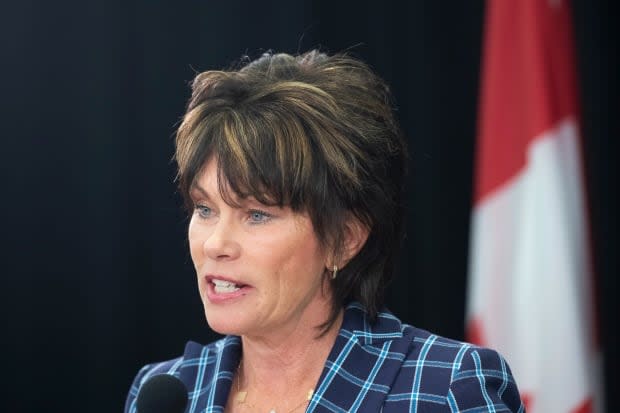N.W.T. and Alberta ministers meet to talk about undisclosed tailings leak

The aftershocks of Alberta's failure to live up to its end of a bilateral water agreement with the Northwest Territories continue to resonate.
Last week, the N.W.T. found out that a tailings pond near Fort McMurray had been leaking for months. There were fears that toxins might have reached the river system that ultimately feeds Great Slave Lake, but no one reported the major leak to the N.W.T. as required under the agreement.
On Thursday, N.W.T. Environment Minister Shane Thompson met with Alberta Environment Minister Sonya Savage to talk about it.
Thompson said he reiterated the importance of the bilateral water agreement and how critical it is that the territorial government is notified of any developments in Alberta's oilsands that could affect the integrity of its water supply.
He said Savage recognized there was a failure to communicate on the issue.
"There was a lot of finger-pointing in this process. And I can tell you she just found out this February, so she was in the same boat as us," said Thompson.
Last May, Imperial discovered brown sludge outside the boundaries of a tailings pond at its Kearl mine, 570 kilometres northeast of Edmonton near Fort McKay. Over the summer, the sludge was found to be tailings seeping from the pond containing high levels of toxins such as arsenic.
It wasn't until Feb. 7 that the Alberta Energy Regulator publicly released an environmental protection order — after another 5.3 million litres of tailings at Kearl escaped from a catchment pond.
Both ministers agreed the bilateral treaty protocol needs to be looked at further.
"It has a provision in it that we require notification when there's evidence of an ecological impact. Our evidence said that nothing reached the waterways so our officials interpreted that we didn't need to give notification," Savage said.
She also said there is ongoing water monitoring being done by the Alberta Energy Regulator and Imperial Oil and they are now working with the Regional Municipality of Wood Buffalo to do independent monitoring.

"We know there are concerns regarding trust and confidence with the whole process," Savage said. "We need to take a step back and say, 'What are the processes, and were they followed, and do we need to enhance them?'"
Thompson said both ministers are committed to working together to improve communication by looking at the specific wording involved in the transboundary agreement protocols.
The two government ministers have said they will be evaluating and fixing the process as a whole and they have committed to meeting face-to-face next month.


